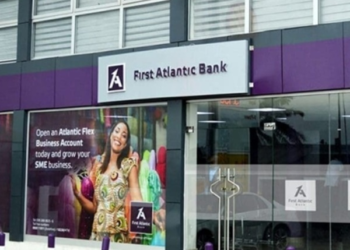Ghana’s banking sector has reported a stellar performance for the first half of 2025, with profit-after-tax reaching an unprecedented GH¢7.2 billion in June.
This represents a 32.6% year-on-year growth, far surpassing the 25.5% increase recorded in the same period of 2024. The latest Monetary Policy Report by the Bank of Ghana attributes this profit surge to significant improvements across income lines, particularly in net interest income and other revenue streams.
The banking industry’s profit-before-tax also registered impressive growth, rising from GH¢8.1 billion in June 2024 to GH¢10.8 billion in June 2025, representing a 32.2% increase. This strong financial performance highlights not only the sector’s resilience in navigating Ghana’s evolving economic environment but also its ability to capitalize on higher interest rates and increased lending activity.
According to the central bank, “the higher growth in profit during the first half of this year was due to increases in interest income and other income lines in 2025 relative to the same period in 2024.”
Interest Income Drives Gains
At the core of this performance was a sharp rise in net interest income, which climbed by 20.2% to GH¢14.2 billion in June 2025, higher than the 19.4% growth rate posted a year earlier. Total interest income rose to GH¢21.6 billion from GH¢18.0 billion, representing 20.4% growth compared to 19.1% the previous year.
The increase in interest income was largely attributed to higher yields on money market instruments and elevated lending rates in 2025. However, interest expenses also climbed, reaching GH¢7.5 billion, reflecting a 20.7% growth rate—still outweighed by the gains in income.
Beyond interest earnings, the banking industry experienced a remarkable surge in other income lines. Net fees and commissions grew by 17.8%, up from 16.8% in 2024, demonstrating steady expansion in transactional revenue. Most notably, “other income” skyrocketed by 52.2% to GH¢3.6 billion, reversing the 16.2% contraction recorded in the previous year.
These developments pushed the industry’s operating income to GH¢20.9 billion in June 2025, compared to GH¢16.8 billion in June 2024. This represents 24.4% growth, nearly doubling the 12.3% growth recorded the year before. Gross income also climbed to GH¢28.3 billion, a 23.4% year-on-year increase.
Cost Pressures Rise but Do Not Halt Profit Growth
While revenues expanded, banks also faced rising costs in 2025. Operating expenses grew by 21.4% compared to 15.5% in 2024, driven by higher staff costs and administrative expenses. Despite these pressures, the rapid growth in income significantly outweighed expenditure increases, leaving the industry with robust bottom-line results.
Interestingly, impairment losses on financial assets and provisions for bad debt contracted by 14.8%, an improvement from the 39.5% contraction recorded in June 2024. This decline in loan impairment costs eased pressure on banks’ financial positions and contributed to the profit boom.
The sharp increase in profitability is a positive sign for Ghana’s financial sector, which has faced periods of turbulence in recent years due to inflationary pressures, currency depreciation, and tightening monetary policies. The current results suggest that banks are not only weathering the storm but also positioning themselves as strong players in Ghana’s economic recovery.
However, industry analysts warn that reliance on high-interest income could pose risks if monetary conditions ease in the near future. A fall in interest rates, though positive for borrowers, could reduce banks’ profitability unless offset by diversification into non-interest revenue sources.
The banking industry’s GH¢7.2 billion profit milestone is an evidence to its resilience, adaptability, and strategic realignment in Ghana’s shifting economy. With profit growth far outpacing previous years, the sector stands out as one of the strongest pillars of the economy in 2025.
As the Bank of Ghana continues to monitor macroeconomic conditions, the challenge ahead will be balancing profitability with affordability of credit for businesses and individuals. For now, however, Ghana’s banks are celebrating a record-breaking year, and the numbers show no sign of slowing down.
READ ALSO: Ghana Wins IMF Confidence with Binding Fiscal Rules, Debt Target of 45% of GDP























